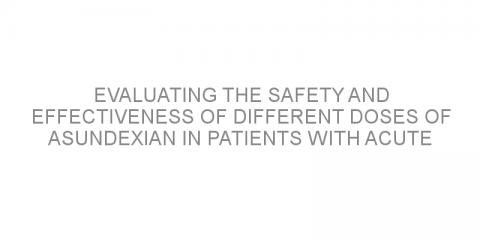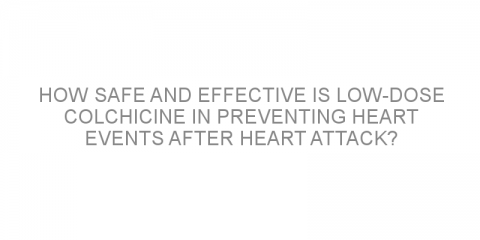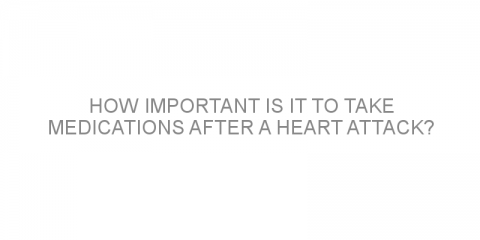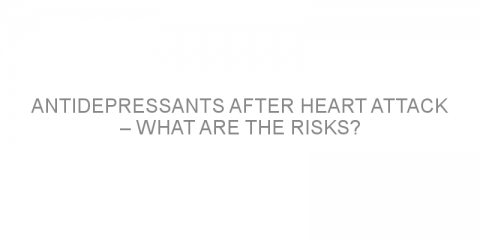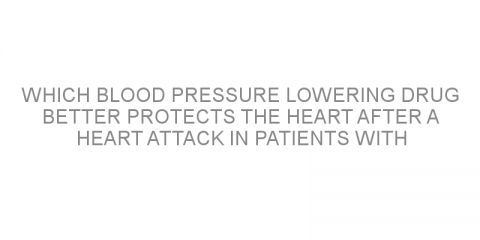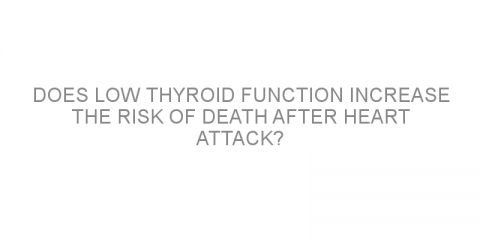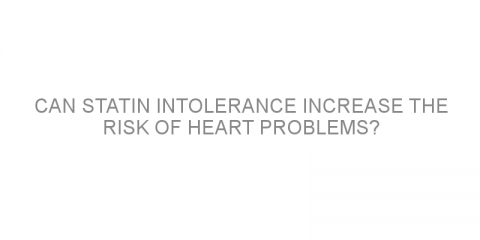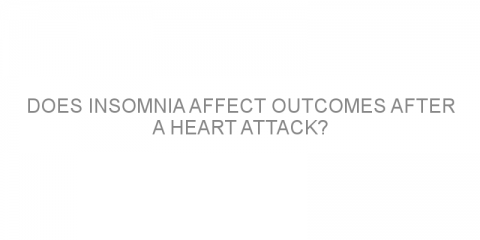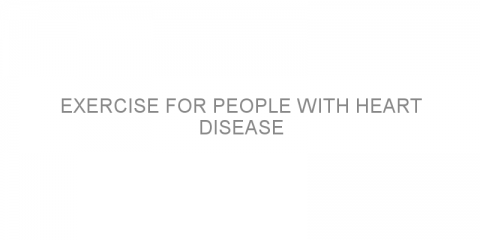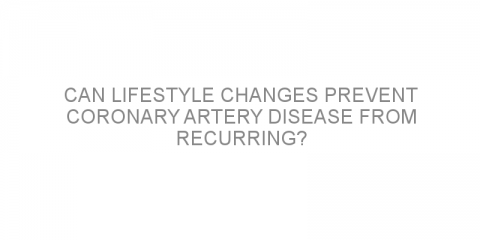In a nutshell This study investigated the safety and effectiveness of different doses of asundexian (BAY 2433334) in patients with acute myocardial infarction (MI; heart attack) treated with dual antiplatelet therapy (DAPT). The data showed that asundexian 50 mg when added to DAPT inhibits blood clotting factor XIa by more than 90% without...
Read MoreA history of a heart attack-Yes, more than once Posts on Medivizor
Does weight loss surgery improve heart health?
In a nutshell This study looked at the effects of weight loss surgery for patients with severe obesity and a previous heart attack. It found that patients who had the surgery had a lower risk of heart attack, heart failure, or death. Some background Heart health and obesity are closely connected. Obesity promotes the build-up of fatty plaque and...
Read MoreHow safe and effective is low-dose colchicine in preventing heart events after heart attack?
In a nutshell This study investigated the safety and effectiveness of low-dose colchicine (Colcrys) after a heart attack. They found that colchicine reduced the risk of ischemic cardiovascular events in these patients. Some background Coronary artery disease (CAD) is caused by reduced blood flow to the heart. Atherosclerosis (ATS)...
Read MoreHow important is it to take medications after a heart attack?
In a nutshell The purpose of this study was to see how good patients are at actually taking their medications properly after a heart attack. The study also looked at the relationship between taking them properly and further heart attacks and strokes. The main finding of the study was that taking these medications properly reduced the risk of death and...
Read MoreAntidepressants after heart attack – what are the risks?
In a nutshell This study investigated if there are risks associated with antidepressant (ATD) use after a heart attack (myocardial infarction, MI). They found that ATD use was associated with higher mortality (death) risk after MI. Some background Myocardial infarction (MI) is the medical term for a heart attack. Antidepressants (ATDs) are used...
Read MoreWhich blood pressure lowering drug better protects the heart after a heart attack in patients with diabetes?
In a nutshell The aim of this study was to compare the effectiveness of angiotensin-converting enzyme inhibitors (ACEI) and angiotensin II receptor blockers (ARBs) in protecting the heart in patients with diabetes that have had a heart attack and who had stents placed. The main finding of the study was that ACEI reduced the risk of major adverse...
Read MoreDoes low thyroid function increase the risk of death after heart attack?
In a nutshell This study investigated if thyroid-stimulating hormone (TSH) levels are associated with a greater risk of death following a heart attack. They found that elevated TSH was associated with a greater risk of death following a heart attack. Some background Thyroid-stimulating hormone (TSH) is produced by the pituitary gland (in the...
Read MoreCan statin intolerance increase the risk of heart problems?
In a nutshell The aim of this study was to assess the risk of recurrent myocardial infarction (MI), coronary heart disease (CHD) events and all-cause mortality in patients with statin intolerance. This study concluded that statin intolerance was associated with an increased risk for recurrent MI and CHD events but not all-cause mortality. Some...
Read MoreDoes insomnia affect outcomes after a heart attack?
In a nutshell This paper studied the effect of insomnia in patients after a sudden heart attack. It concluded that patients who had insomnia were more at risk of death from all causes 2 years after a heart attack than patients who did not have insomnia. Some background Sleep is a time when the body recovers and rejuvenates. Impaired sleep...
Read MoreExercise for people with heart disease
In a nutshell This paper provided an overview of cardiac rehabilitation for people with heart disease. Some background Cardiac rehabilitation involves activities done to improve the condition of heart disease. Activities such as exercise, psychological intervention, and patient education all form a part of cardiac...
Read MoreCan Tai Chi Chuan help after a heart attack?
In a nutshell This paper studied the impact of a Tai Chi Chuan cardiac rehabilitation program for patients recovering from a recent heart attack. Some background After a heart attack, many patients have reduced heart function and reduced ability to exercise. Rehabilitation after a heart attack includes physical exercise to increase heart...
Read MoreCan lifestyle changes prevent coronary artery disease from recurring?
In a nutshell This study investigated whether lifestyle changes such as not smoking, reducing weight, increasing physical activity, and maintaining a Mediterranean diet prevents coronary artery disease from recurring in patients who previously had coronary artery disease. Some background Coronary artery disease is a condition that...
Read More
